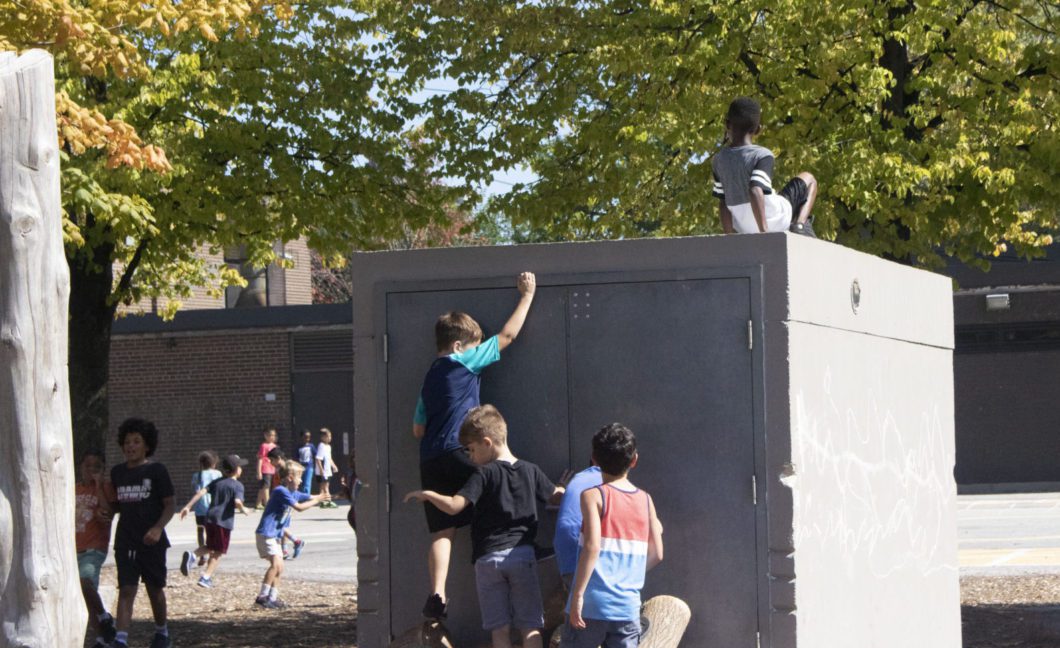Principal Sean Hume walks through the playground during lunchtime at Chester Elementary school. He passes groups of students climbing on shelters, making forts, and climbing trees.
He gets to a group that has a rope attached to a tire swing. They’re trying to lift the swing — and a student — off the ground. He gives them pointers and helps them easily lift the student.
“That’s what we expect of our staff,” Hume says.
This scene would be foreign to most schools in Toronto, but it’s about to become more common.
Chester Elementary is one of three pilot schools selected for the Toronto school board’s Outdoor Play and Learning (OPAL) program.
The program gets students outside more and gives them freedom to do what they want in their recess time. At Chester, there are trees, ropes, tires, and shelters that the students are welcome to use in any way they want.
“They have opportunities to think outside the box — quite literally,” Hume says. “This school is a box, and we get them outside, and they get to be as creative as they can in deciding what they want to do.”
Despite students having control of what they want to do, parents are mostly on board, Hume says.
“The biggest challenge was getting [parents] comfortable with having kids be outside in all kinds of weather,” Hume says.
The OPAL program has three main rules. What the students are doing has to be fun, inclusive and safe enough.
“And by that I mean safe enough for them, because what’s safe for one child might be unsafe for another child,” Hume says.
Lunchroom supervisor Georgia Hadjicosta, who has been at Chester for over 20 years, likes the OPAL program because it reminds her of her youth in Europe.
“I like it because it reminds me of back home,” she says. “Back home, there was a lot of outdoor activities.”
She also likes being able to help the children learn and see what’s right to do.
“I’m glad that I’m here and I’m giving them some advice about safety,” Hadjicosta says.
Even though the students only have three rules they have to follow, they as a group have made more rules to make sure their play is safe.
“We provide place, and we provide the stuff, but we don’t dictate how they use it,” Hume says. “They make the decisions mostly, and more often than not, they’re making rules, not us.”
He expects the OPAL program to be in 25 more schools soon.

